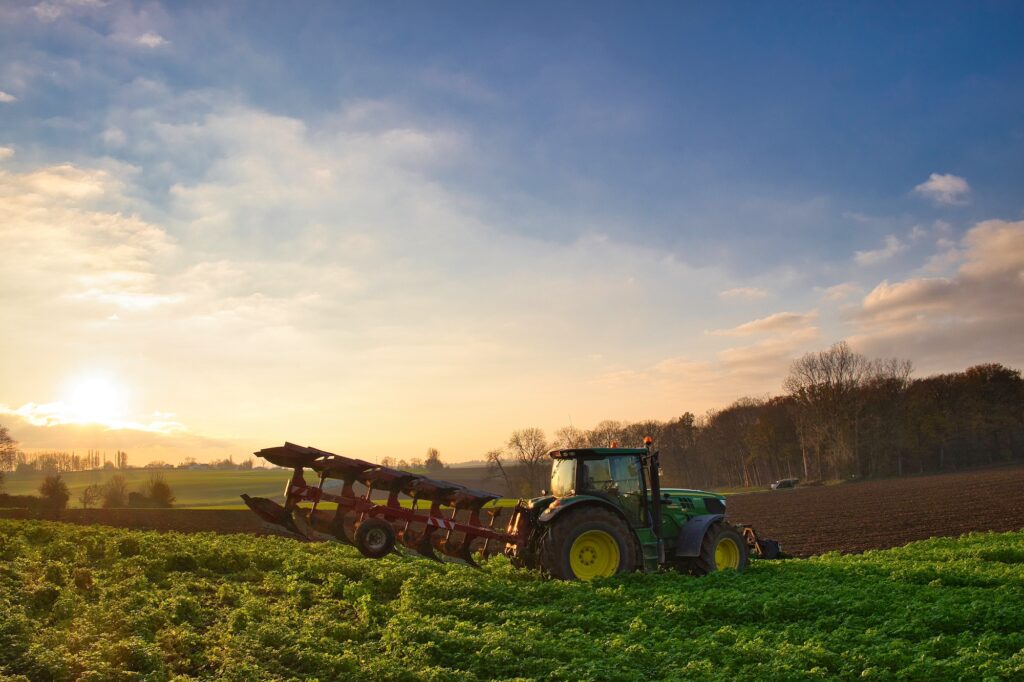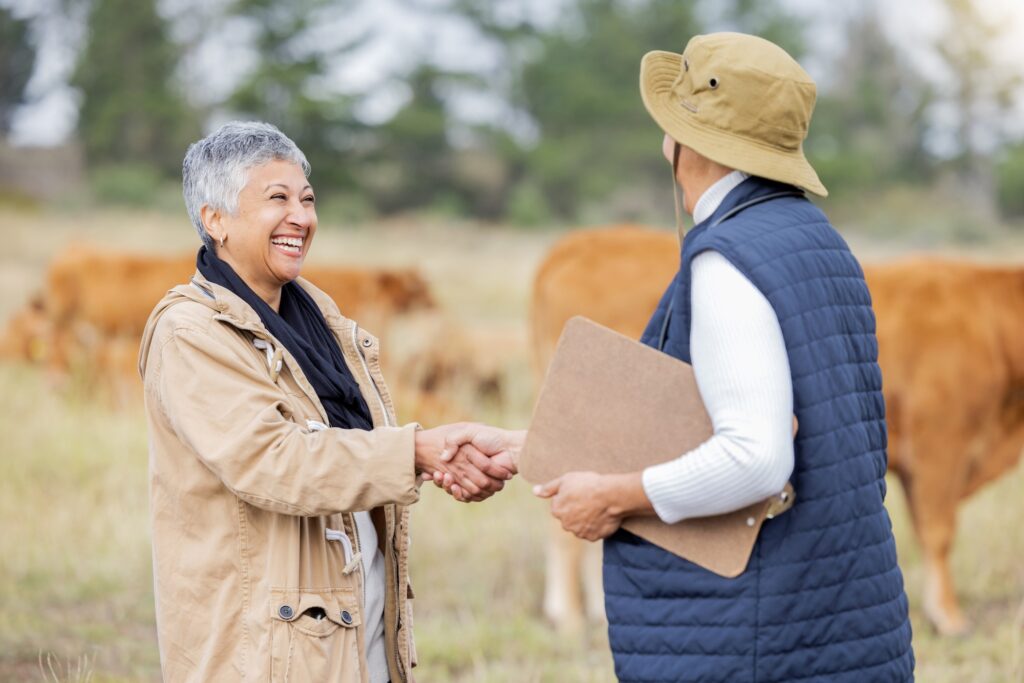
With decades of experience, our team understands the financial challenges rural Americans face. That’s why we’re proud to be a reliable solution, partnering with brokers and lenders nationwide to provide agricultural loans to their clients. Discover the ins and outs of farm loan requirements with insights from our team at United Ag Lending.
We’re here to help you provide your rural property clients with everything they need. Whether you’re interested in preparing your clients to ask for a farm loan or simply hoping to broaden your lending horizons, this is the place for you.
Types of Loans
We provide loans for clients looking to purchase agricultural property, including adding to their current land or refinancing an existing loan. To determine if you meet our loan requirements, it’s helpful to know which loan program you’re pursuing. For those who are unfamiliar with the types of rural properties, we’ve provided brief descriptions of each. Our flexible loan programs are for:
- Commercial farms: Designed to make a profit, commercial farms are full-scale businesses, ranging from small, individual-owned farms to massive operations. A few examples of commercial farm industries we serve are logging, orchards, and cattle.
- Hobby farms: Hobby farms allow individuals and families to pursue their passion for agriculture on a small scale. While hobby farms may bring in some revenue, it is usually seen as a secondary source of income for the owners, with the main focus being on personal satisfaction. Many hobby farm loans are limiting, but our lending flexibility is quite extensive.
- Rural homes: Rural houses do not need farmland like other types, they just need to be in a rural area. They’re ideal for individuals looking to move to the country, longing for a pastoral lifestyle.
- Agricultural land: Agricultural land properties are for people seeking the freedom to create whatever they like. A person does not need to be a farmer or live on the property to receive a land loan. The 3 types of agricultural land—raw, unimproved, and improved—can be for casual recreation, a full-fledged business, or another venture.
After listing the requirements for each loan type, we’ll delve into the details and reasoning behind each of them. To view these details, skip to the section titled Understanding Our Farm Loan Requirements.
Commercial Agriculture And Farm Loans
- Minimum loan amount of $500K
- Property is 10+ acres
- 680 minimum credit score
For a commercial farm loan requirements checklist, visit our blog.
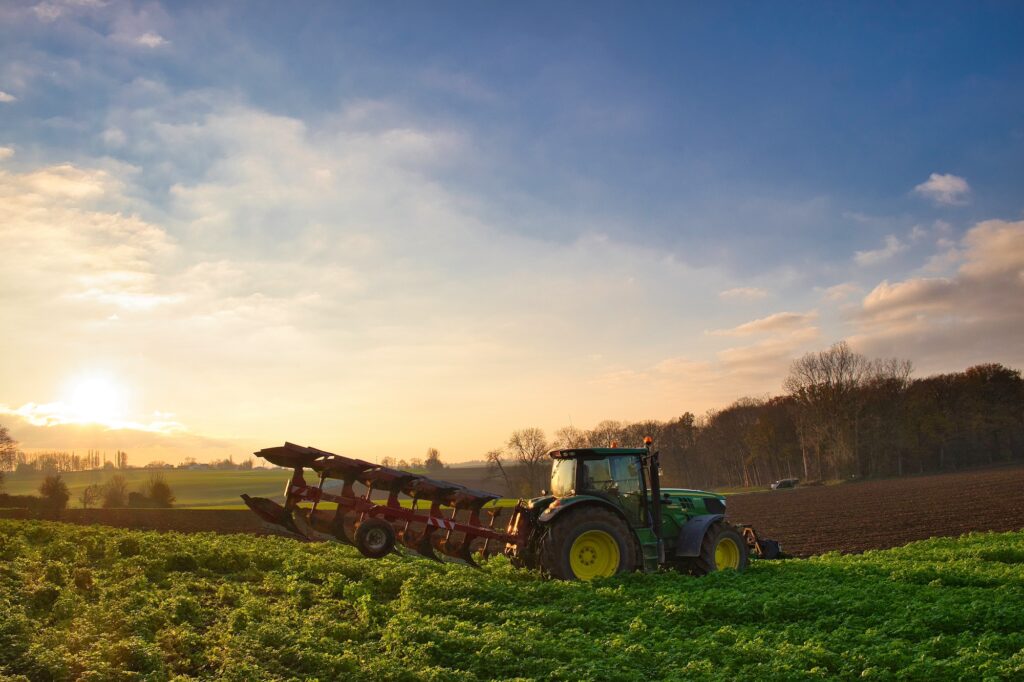
Hobby Farm Loans
- Maximum loan amount of $2 million
- Property is between 5 and 160 acres
- Selectively offering over 160 acres
- Property is agricultural in nature
- Land has a pre-existing home on it, serving as your primary or secondary residence
- 680 minimum credit score
Rural Residential Loans
- Property is 5+ acres
- Property is in a rural area
- Land has a pre-existing home on it, serving as your primary or secondary residence
- 680 minimum credit score
Land Loans
- Minimum loan amount of $500K
- Property is 10+ acres
- Property is agricultural in nature
- No residential or lot loans
- 680 minimum credit score
Understanding Our Farm Loan Requirements
While some of our farm loan requirements are more straightforward, others can be more difficult to understand, especially if you’re new to the world of agriculture and rural living. In this section, we’re breaking down each requirement, detailing why they are in place and how they’re set. You’ll find information on:
Loan Amount Ranges
For larger ventures, chiefly commercial farms and agricultural land purchases, there’s a minimum loan amount of $500,000. This floor is set to account for the extensive costs of managing a bigger agronomic operation. Smaller ventures, such as hobby farms, have a maximum loan amount of $2 million. The cap matches the lower costs of an operation with a lack of substantial profit motivation.
Many factors impact how we determine these loan amount ranges, including:
Location
The nearer an urban area, the more costly agricultural land may be because of the proximity to many conveniences and the lack of space. Additionally, due to the climate and soil condition of certain regions, different lands have varying harvest returns per acre. With more successful agricultural land, you’ll experience more demand and higher costs. Local regulations for agriculture, taxes, and other policies can impact the value of farmland too.
Size
Larger plots of land offer more capacity for crops, livestock, and other pursuits. With this capacity comes the potential for higher costs, risks, and earnings, affecting our loan amounts.
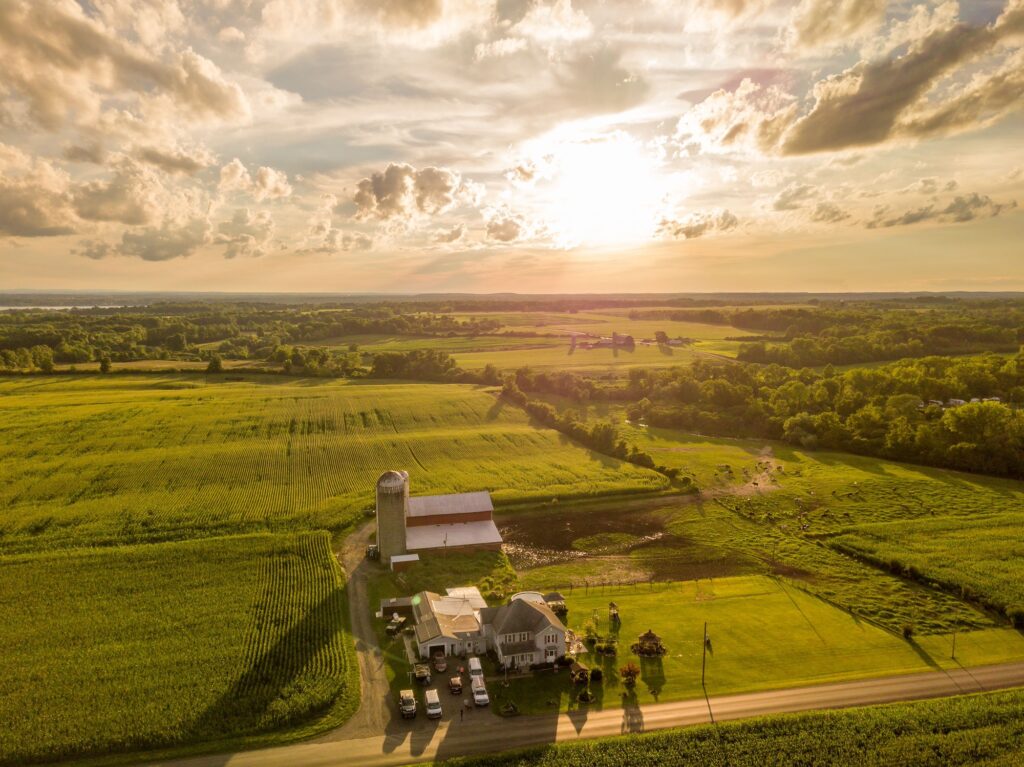
Intentions
Your client’s goals for their loan shape their expenses and revenue prospects. Imagine he or she wants to move to a rural plot of land simply to grow their own vegetables and enjoy the natural scenery; their expenses are much lower than a farmer seeking to buy 100 or more acres for their commercial operation.
Location, size, and intentions are not the only elements dictating our loan ranges, but they play a meaningful role.
Acreage
Our farm loan requirements for acreage balance the risks with your client’s loan objectives. For commercial and land loans, the minimum requirement of 10+ acres ensures the property has a worthwhile farming capacity. At United Ag Lending, there is no set maximum for these types of loans to allow the flexibility for expansive projects.
Hobby farm loans cater to much smaller endeavors, so their permitted acreage is also smaller. However, we allow up to 160 acres (and more in specific cases), which is rare among hobby farm loan options. We seek to accommodate those pursuing farming as a lifestyle rather than a primary income source without putting a stopper in their freedom to expand.
To maintain the borrower’s desire for wide open spaces without farming obligations, rural residential loans must have at least 5 acres. These requirements help match the scale of land use with the loan’s purpose, managing risk while catering to diverse agricultural and residential needs.
Nature of Property
“Nature of property” requirements make sure the use of a property lines up with the loan type. Agricultural loans, such as for commercial farms, hobby farms, or land, must be able to serve farming needs sufficiently. Our residential loans must be rural to accommodate your client’s desire for country life while disallowing farming activities.
Many factors determine whether a piece of land is agricultural, rural, residential, or otherwise, such as:
- Local zoning designations
- Property characteristics, such as size, layout, and infrastructure
- Current use
- Climate and soil conditions
- Surrounding area and community
Land loans have stricter requirements, excluding residential and lot loans. These restrictions prevent our agricultural loans from funding the development of housing or non-ag businesses. These requirements help you and your client manage risk more effectively by ensuring that their loan matches their property’s attributes.
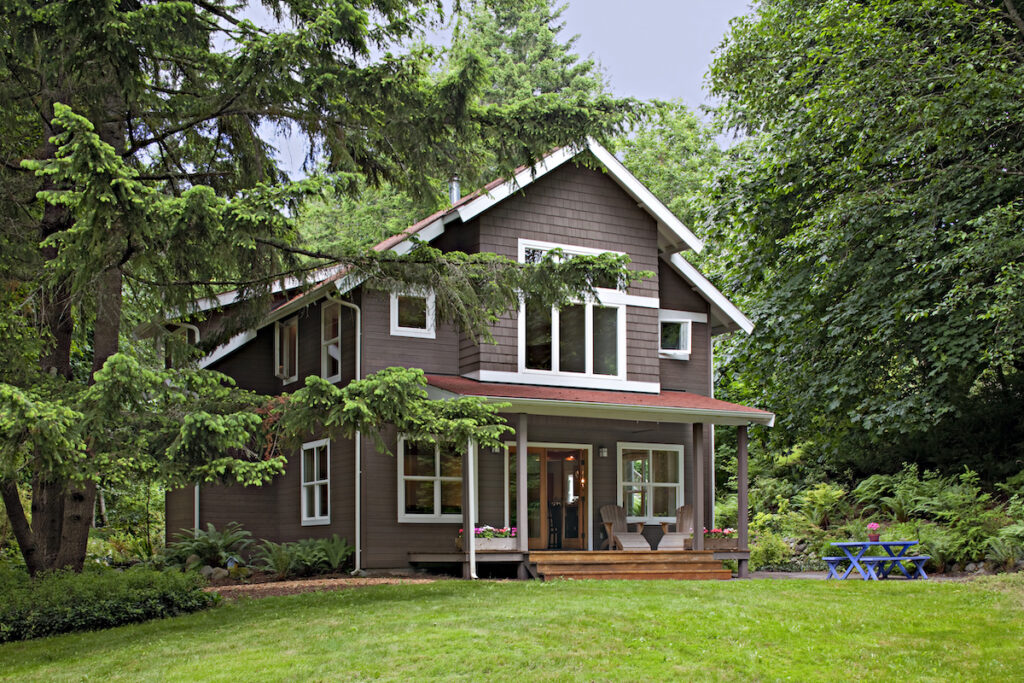
Pre-Existing Property
Pre-existing property loan requirements exist to guarantee that your client’s goals, property, and loan type align. Both rural residential and hobby farm loans are for individuals primarily seeking a place to live, either full or part time. Having a pre-existing property on their land eliminates the need for further development.
A pre-existing property is a home or livable structure that can pass a safety inspection, meet local building codes, and generally has:
- Structural soundness
- Running water
- A kitchen
- A bathroom
- Heating
When a property meets these standards, that ensures our loan is supporting a property suited for immediate residential use. This lowers financial risk since places with existing infrastructure are more stable and safer investments than undeveloped land.
Minimum Credit Score
We have a minimum credit score requirement of 680 for each of our loan products. A credit score of 680 shows responsible financial behavior. If you meet this requirement, it shows a client can handle debt well and make payments on time, which is crucial for successfully repaying loans and staying financially secure while managing agricultural land.
However, for land and commercial farm loans, we only require a credit score of 680 from one of the three credit bureaus. We always strive to allow for flexibility, in this case recognizing that credit scores may vary slightly between bureaus. If you have questions regarding your client’s credit score, don’t hesitate to reach out.
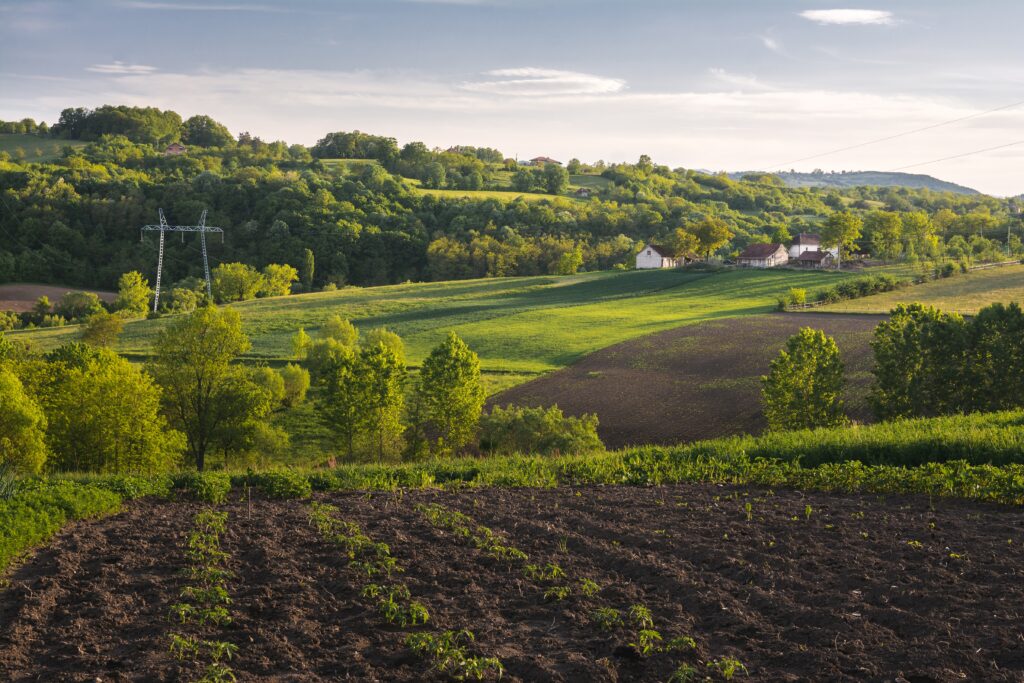
Take the First Step With United Ag Lending
The demand for agricultural loans is growing as rural populations have been increasing since 2011. Widening your knowledge of rural living and farm loans is a great way to capitalize on this burgeoning market. At United Ag Lending, our team offers the support necessary for your success. Take the first step in furthering your reach by getting to know us better!
Would you like to become one of our lending partners? Contact us to learn more about our farm loan requirements and our comprehensive agricultural lending services.
United Ag Lending’s TPO Licensed States: Arizona, Arkansas, California, Colorado, Florida, Georgia, Idaho, Indiana, Iowa, Kansas, Kentucky, Maryland, Massachusetts, Michigan, Mississippi, Missouri, Montana, New Jersey, New Mexico, North Carolina, Ohio, Oklahoma, Oregon, Pennsylvania, South Carolina, Tennessee, Texas, Washington, and Wyoming
Continue reading: Hobby Farms vs. Commercial Farming | Cultivating Growth With Tailored Financing; How to Originate a Poultry Farm Loan | Funding a Flock


